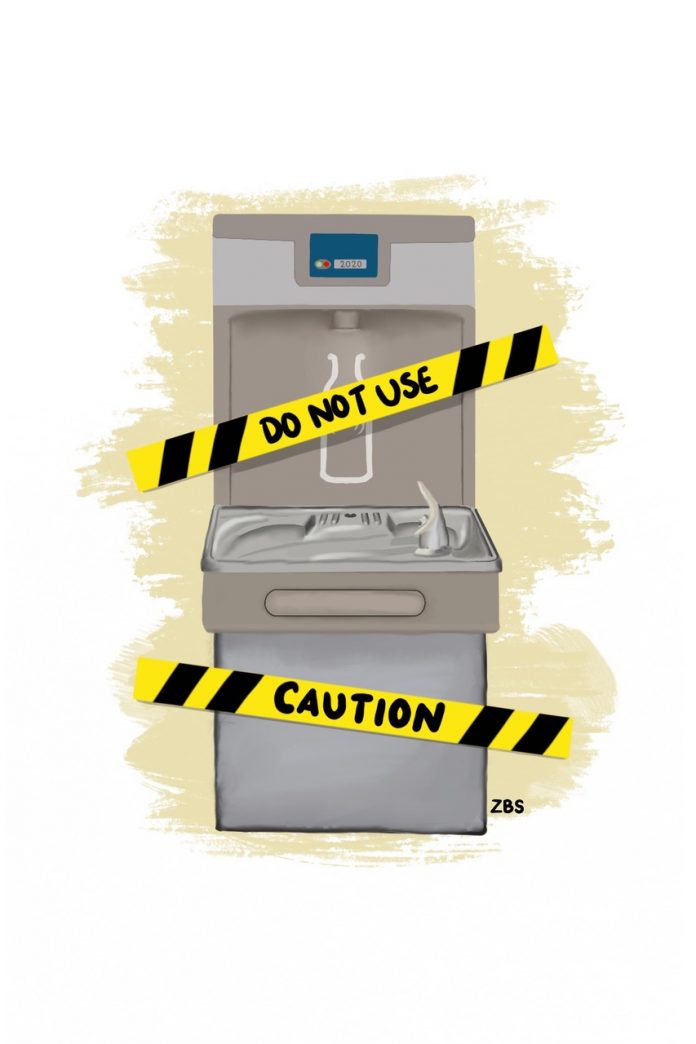Resident assistants at the College of William and Mary have always had difficult jobs; they act as peacemakers, peacekeepers and enforcers of the housing contract when that peace goes awry. At best, they’re maybe a year or two older than the residents they’re supposedly in charge of for an entire academic year. However, many of them know exactly what they are getting into when they apply to become resident assistants. This is not the case amid the COVID-19 outbreak.
After the four weeks I have been navigating life back on campus, I have noticed the extra duties and responsibilities that resident assistants are now saddled with. Everyone on campus, as we well know, is required to wear a mask unless actively eating or drinking and must keep a physical distance of at least six feet. Considering that the majority of my time is spent in my residence hall out of the need to do my online work and the desire to stay removed from any crowds, I have had lots of interesting experiences with either my own resident assistant, or the RA on duty during nights.
No longer I am able to go into the kitchen and use whatever is there at my own disposal, as shared items are not allowed. I cannot use the fridge for anything, nor can I even use the water fountain to refill my bottle. Despite having only two sinks for six girls, one of them is taped off to encourage fewer people in the bathroom at one time. Making sure that I and others follow these new rules, however, falls to the resident assistant.
The College sent out a rather threatening email a few weeks ago, in an attempt to ensure adherence to the new COVID-19 related policies and rules. “Do not be selfish — your actions impact the entire community. Do not be the person who causes us to shut down this semester,” Marjorie Thomas, Dean of Students wrote Aug. 21.
Understandably, resident assistants would not want said actions to occur among their own residents and have attempted their best to curtail any “selfishness”.
At the end of the day, however, they are just students as well — students who should not be expected to bear the burden of COVID-19 singlehandedly. Indeed, not only is it incredibly difficult to do, but in some cases, it is nearly impossible to perfect on a large scale.
I spoke to several resident assistants, and all felt the increased stress that said responsibilities were having on them. Furthermore, resident assistants are not allowed to speak to any press or organizations without the approval of their area director, which discourages them from voicing their concerns too vocally or publicly. Resident assistants indicated that the hardest part of this semester is being expected to enforce rules that do not necessarily make sense. They are more than happy to enforce when the reason for such rules is obvious, but less so when the motivation is more obscure, or applied without any exceptions to unique cases.
For instance, living units of roommates spend much time together in an enclosed space, and touch many of the same objects. Why then, are shared objects between living units not allowed at initiatives and small social gatherings? Why are amenities being taped off without first discussing it within individual residents and halls?
After all, students are paying for not only room but board as well, including such simple things as water fountains, adequate bathroom availability and complete kitchen usage. Although I agree with the College that a certain amount of enforcement is needed to keep all on campus safe and healthy, I do not agree with their methods of doing so.
These large responsibilities should not be directed to resident assistants, as I believe it is outside of their jurisdiction. They already have to deal with normal concerns of day-to-day living and should not have the added role of COVID-19 facilitators.
This is an extremely controversial time of life, and this dissatisfaction with College decisions extends to resident assistants as much as it does the average student. Complying with seemingly ridiculous policies and procedures should not be the standard of resident assistants; they should have the right to justly challenge these new expectations and stressful roles without backlash.
Email Elaine Godwin at

